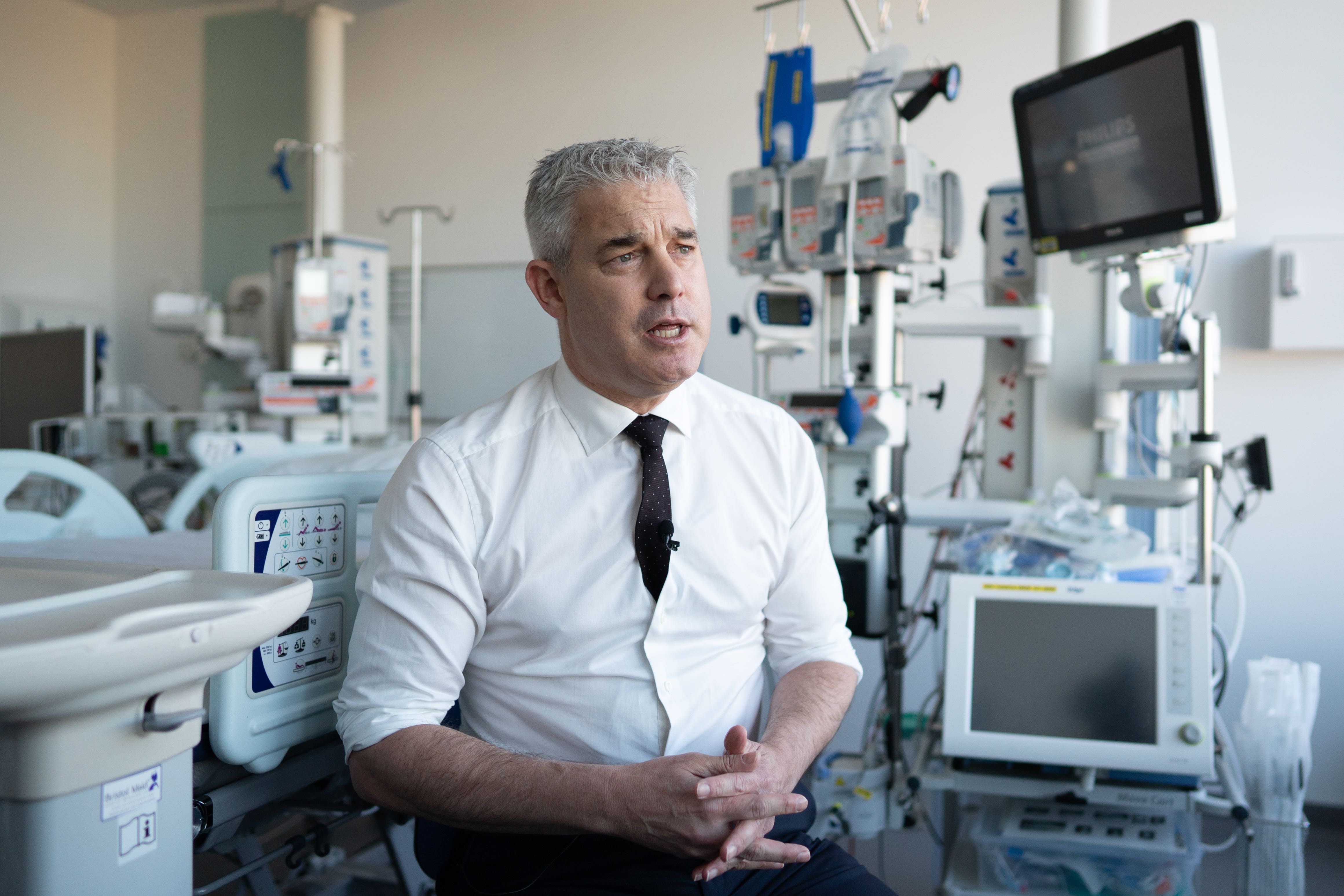Steve Barclay: Seeing 95% A&E patients within four hours ‘too ambitious’
Tory former health ministers pressed their successor to commit to preventative health measures.

Your support helps us to tell the story
From reproductive rights to climate change to Big Tech, The Independent is on the ground when the story is developing. Whether it's investigating the financials of Elon Musk's pro-Trump PAC or producing our latest documentary, 'The A Word', which shines a light on the American women fighting for reproductive rights, we know how important it is to parse out the facts from the messaging.
At such a critical moment in US history, we need reporters on the ground. Your donation allows us to keep sending journalists to speak to both sides of the story.
The Independent is trusted by Americans across the entire political spectrum. And unlike many other quality news outlets, we choose not to lock Americans out of our reporting and analysis with paywalls. We believe quality journalism should be available to everyone, paid for by those who can afford it.
Your support makes all the difference.The Government will not set a target of seeing 95% of A&E patients within four hours because it is not achievable, the Health Secretary has said.
Steve Barclay was asked whether ministers would set an ambition to return to the pre-pandemic official target for A&E waiting times as he laid out the Government’s plans for emergency care.
As part of a new plan for improving urgent and emergency care, the Government has set goals that by March 2024, 76% of A&E patients will be dealt with in four hours.
Currently fewer than 70% are seen in this time, and the official target is 95%.
In the Commons Labour MP Janet Daby (Lewisham East) described how one of her constituents waited eight hours for their baby to be seen by a doctor, and pressed ministers to return to the official target.
Ms Daby said: “My constituent’s 11-month-old son had to wait in A&E last night for eight hours.
“They find this extremely unacceptable.
“The waiting experienced in our hospital is like ‘being in a disaster zone’, and they are not my words, but the words of my constituent.
“My constituent went on to explain about parents having to sit on floors and wait for hours to be able to be seen, or their children to be able to be seen, by a doctor.
“So, I press the minister, is there a plan to return to the standard of 95% of patients who come to A&E to be seen within four hours?”
Mr Barclay replied: “We are not setting out that ambition in this statement, because the impact of the pandemic has been so severe. We need to set a target that is ambitious but achievable, and that is what we have done.”
Elsewhere in the debate, Tory former health ministers pressed their successor to commit to preventative health measures.
Former health secretary Sajid Javid told the Commons: “He will know that one of the reasons that emergency care faces so much pressure is because successive governments have not focused enough on the prevention agenda.
“Indeed, last week’s news that the Government will not be going ahead with individual focused plans on cancer, dementia and mental health has concerned many, so can I ask him just to assure this House that when it comes to the Government’s new major conditions strategy that it will be published promptly, it will be comprehensive, and significant?”
Mr Barclay replied: “I can reassure the House that our commitment to the missions through the Office for Life Sciences, the cancer mission, the dementia mission, is absolutely that commitment is there.
“He is right, we are bringing that together in one paper because I think we should take a holistic view of our approach, but I absolutely share his ambition in terms of prevention.”
Conservative chairman of the Health and Social Care Committee Steve Brine asked about the “ambition on the two-hour response to frail and elderly with falls at home, to prevent them from being admitted into the acute sector”.
Former health minister Mr Brine said: “Obviously this was committed to in the long-term plan, he will know.
“What does he need to put this ambition into practice?”
Mr Barclay responded: “I think one of the key things is less the funding and the accuracy of the data, to see where there are gaps in coverage, how we get the right levels of community response.”